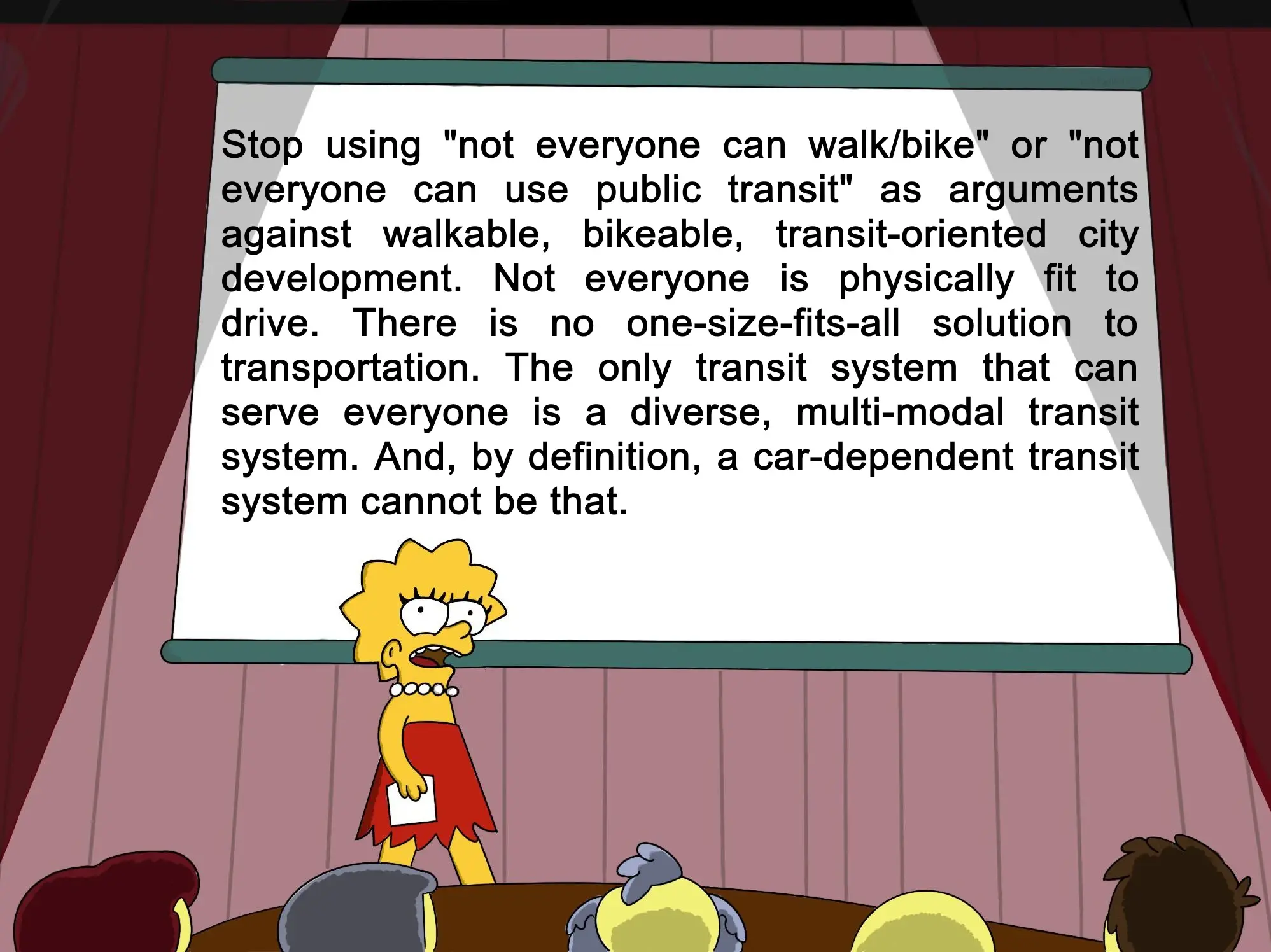Fuck Cars
A place to discuss problems of car centric infrastructure or how it hurts us all. Let's explore the bad world of Cars!
Rules
1. Be Civil
You may not agree on ideas, but please do not be needlessly rude or insulting to other people in this community.
2. No hate speech
Don't discriminate or disparage people on the basis of sex, gender, race, ethnicity, nationality, religion, or sexuality.
3. Don't harass people
Don't follow people you disagree with into multiple threads or into PMs to insult, disparage, or otherwise attack them. And certainly don't doxx any non-public figures.
4. Stay on topic
This community is about cars, their externalities in society, car-dependency, and solutions to these.
5. No reposts
Do not repost content that has already been posted in this community.
Moderator discretion will be used to judge reports with regard to the above rules.
Posting Guidelines
In the absence of a flair system on lemmy yet, let’s try to make it easier to scan through posts by type in here by using tags:
- [meta] for discussions/suggestions about this community itself
- [article] for news articles
- [blog] for any blog-style content
- [video] for video resources
- [academic] for academic studies and sources
- [discussion] for text post questions, rants, and/or discussions
- [meme] for memes
- [image] for any non-meme images
- [misc] for anything that doesn’t fall cleanly into any of the other categories
Recommended communities:
view the rest of the comments

Yeah, the only things autonomous cars might reduce are:
It's the same fundamental problem that electric cars have: geometry. Cars -- even if electric and self-driving -- are simply grossly inefficient at moving people for the amount of land they require:
The velomobile (electric or manual) is the most efficient transport in energy per mile. You could easily design something like a self driving podbike, maybe a little bigger, weighing maybe 100kg.
And self driving also allows for new configurations, e.g. two seats that face each other because you don't need a steering wheel. That means much more narrow and aerodynamic "micro cars" that could solve a lot of edge cases for people who can't drive or not that long or fast (50kmh / 30mph). They might compete with a big bus.
Except that the jury is not "still out" on number two, it is simply a matter of time, engineering, and training before they are statistically safer than humans.
Waymo's cars are already safer than humans in their limited conditions.
I agree that they're already statistically safer in limited conditions; the key part is when/if they will surpass in a wide range of conditions, including heavy snow or the disorganized and often unmarked roads of developing countries, for instance. For what it's worth, however, I do think the tech will eventually get there.
Just an observation, humans aren't able to navigate heavy snow and disorganized traffic any better. We guess where the road should be, what the conditions are, and where other cars are, and commit with full confidence in our lack of knowledge. It works OK, but there are infinity examples of it not working. Literally any logic behind navigating these scenarios is better that what we can do with our feeble meat suits.
My only point is that if I'm being super pessimistic about timescales, I'm estimating ~30years for self driving cars to clearly surpass human drivers, and multiple generations before you eliminate human error from dangerously designed roads, to drunk driving, to distracted driving, to sleepy driving etc.